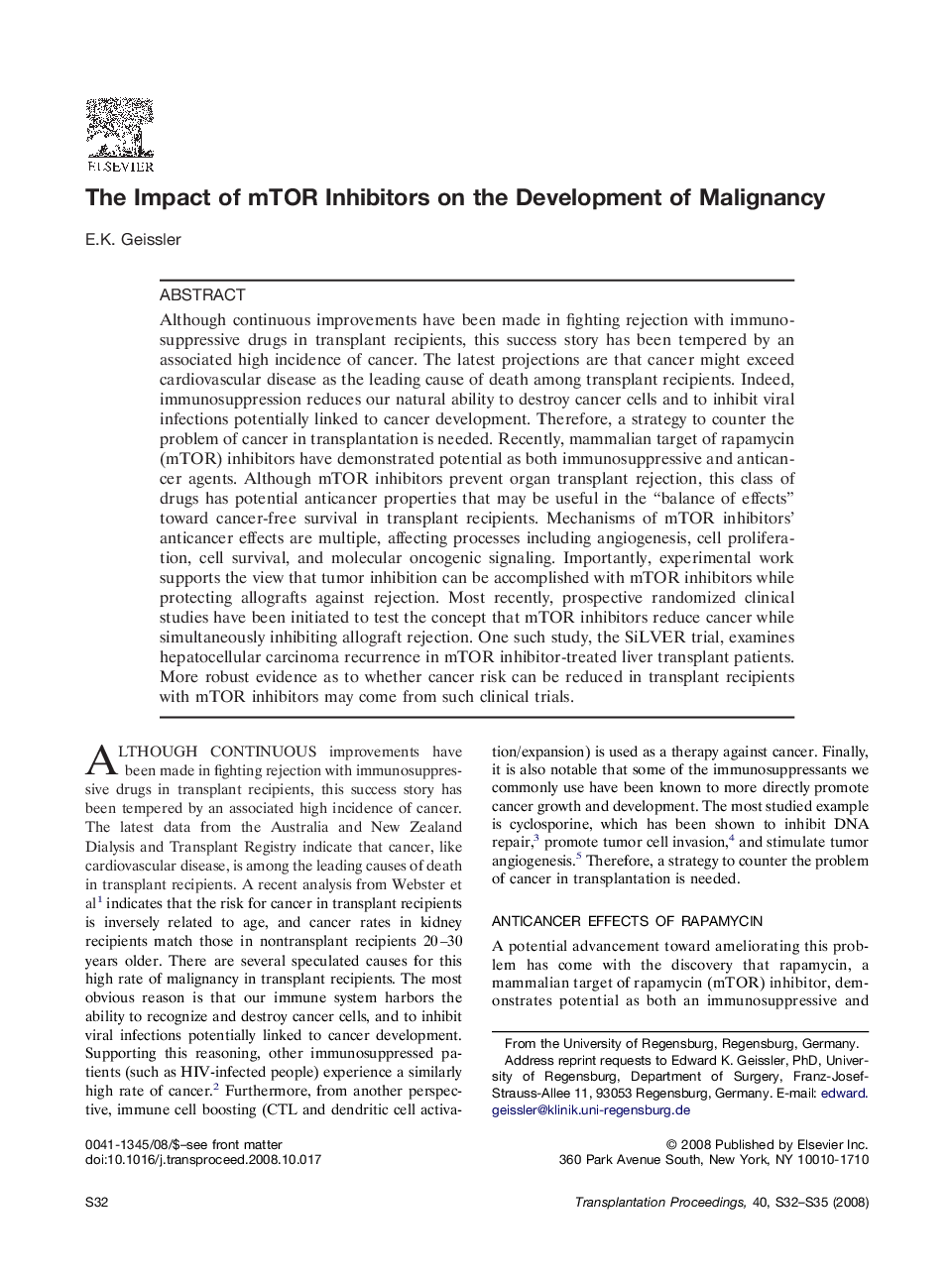| Article ID | Journal | Published Year | Pages | File Type |
|---|---|---|---|---|
| 4260981 | Transplantation Proceedings | 2008 | 4 Pages |
Although continuous improvements have been made in fighting rejection with immunosuppressive drugs in transplant recipients, this success story has been tempered by an associated high incidence of cancer. The latest projections are that cancer might exceed cardiovascular disease as the leading cause of death among transplant recipients. Indeed, immunosuppression reduces our natural ability to destroy cancer cells and to inhibit viral infections potentially linked to cancer development. Therefore, a strategy to counter the problem of cancer in transplantation is needed. Recently, mammalian target of rapamycin (mTOR) inhibitors have demonstrated potential as both immunosuppressive and anticancer agents. Although mTOR inhibitors prevent organ transplant rejection, this class of drugs has potential anticancer properties that may be useful in the “balance of effects” toward cancer-free survival in transplant recipients. Mechanisms of mTOR inhibitors' anticancer effects are multiple, affecting processes including angiogenesis, cell proliferation, cell survival, and molecular oncogenic signaling. Importantly, experimental work supports the view that tumor inhibition can be accomplished with mTOR inhibitors while protecting allografts against rejection. Most recently, prospective randomized clinical studies have been initiated to test the concept that mTOR inhibitors reduce cancer while simultaneously inhibiting allograft rejection. One such study, the SiLVER trial, examines hepatocellular carcinoma recurrence in mTOR inhibitor-treated liver transplant patients. More robust evidence as to whether cancer risk can be reduced in transplant recipients with mTOR inhibitors may come from such clinical trials.
